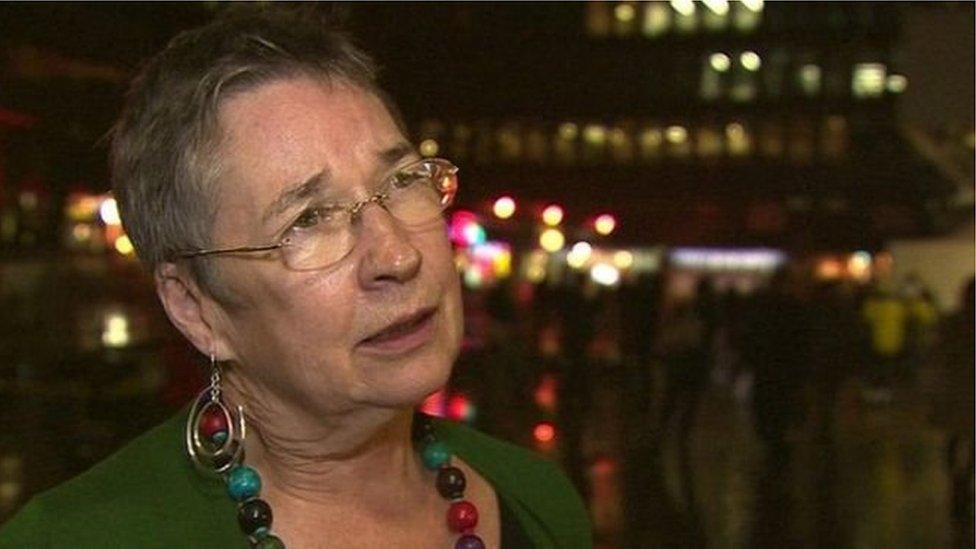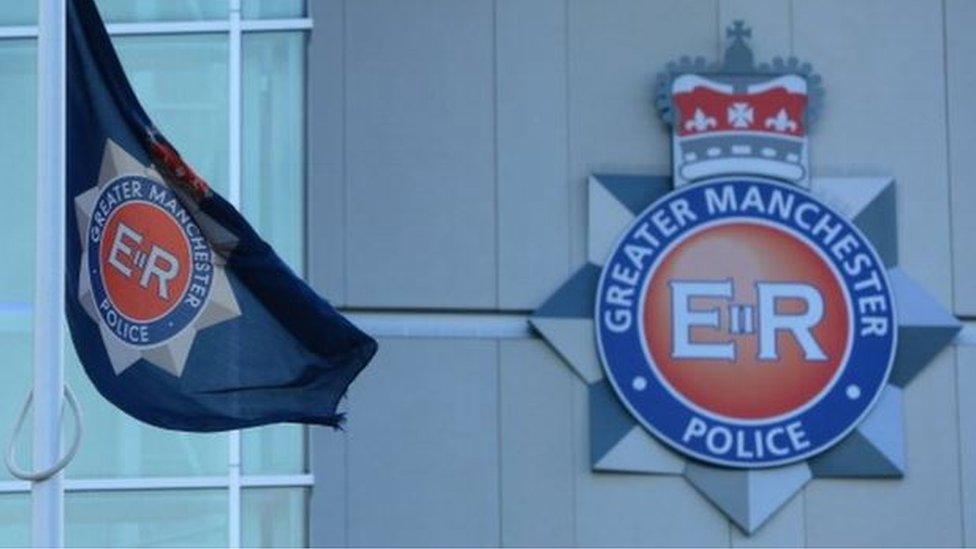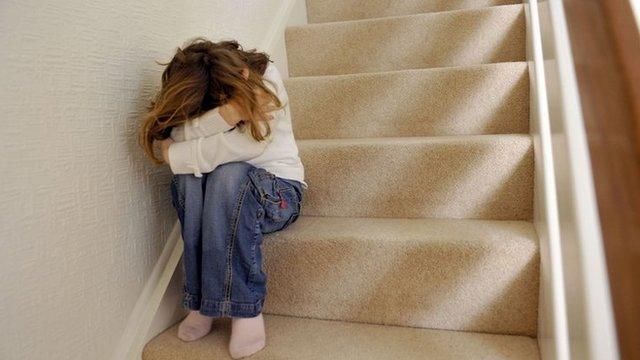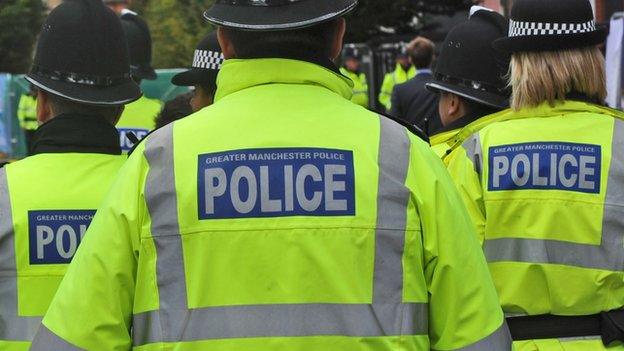Report shows computer delays in child grooming inquiries
- Published

A study said Greater Manchester Police face a "major challenge" in dealing with internet-based child sex offenders
Police can face a backlog of up to five months to analyse computers linked to suspected paedophiles, a report has found.
MP Ann Coffey highlighted the delays as part of a study into child sexual exploitation in Greater Manchester., external
The report found the number of "known or suspected" child sex offenders in the region had risen to 1,139, double the number recorded in 2014.
Police in the region investigated 9,035 reported offences since 2013, it said.
The report, entitled "Real Voices, Are They Being Heard?" is a follow-up to a 2014 study commissioned to assess improvements in protecting youngsters after nine men were jailed in 2012 for running a child sexual exploitation ring in Heywood and Rochdale.
It widely praised Greater Manchester Police and said "cultural changes" and "better training and awareness" had led to "significant increases" in reporting offences, identifying offenders and intelligence tip-offs.
However, it criticised delays at the force's digital investigation unit.

Stockport MP Ann Coffey is a leading campaigner against child sex abuse
It highlights the case of a mother whose 13-year-old daughter was being groomed and reported it in 2013, handing in her child's computer and mobile phone to police.
Ten months later the family had heard nothing, the report claims.
In the meantime the man had gone on to groom another girl and sexually abuse her. He was eventually charged and jailed for four-and-a-half years in November 2016.
GMP said there had been an improvement in waiting times since June 2014 when there was a backlog of more than 16 months for non-urgent computer cases to be analysed.
According to data from December 2016, the oldest case awaiting investigation was five months, the report found.

The report also found:

Police received 10,269 pieces of intelligence between October 2014 and June 2016, including anonymous tip offs
There were 1,732 young people identified as victims of or at risk of child sexual exploitation, almost treble the number recorded in 2015
Of the total 9,035 reported offences since 2013, 4,066 of those were against girls and boys under 13

Det Supt Joanne Rawlinson said examining computers and mobile phones could be a "lengthy process" and required "specific specialised skills".
"Given a significant proportion of grooming and other similar offences takes place online, the demand for investigations of this kind has grown at a faster rate than we've been able to recruit and train staff to interrogate devices," she said.
"We are aware this is an area that requires improvement and are working hard to develop and speed up our process, while ensuring our investigations remain thorough and leave no stone unturned."
Ms Coffey, a leading campaigner on issues of child sex abuse, said: "The major challenge facing GMP is dealing with the demand on resources created by online offenders who often have multiple victims.
"Any delay in examining computers, tablets or phones and retrieving evidence for use in prosecution increases the danger to children as offenders will continue to try and make contact with hundreds of children."
Police and Crime Commissioner Tony Lloyd, who commissioned the report, said that while its findings were "shocking", it also "shines a positive light" on the police and other agencies working to tackle sex offences against children.
- Published3 March 2015

- Published29 October 2014
